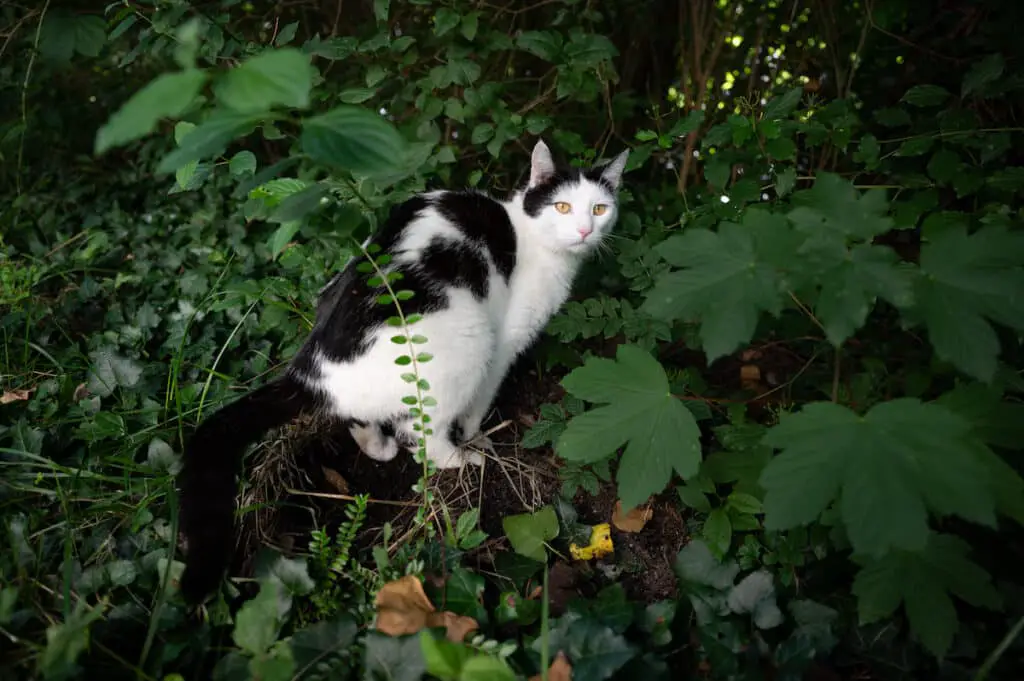Whether you’re a cat lover or you’re worried about your pet’s feces, here are three reasons to never put cat urine and feces in your garden. Keeping your garden free of cat urine and feces is essential to reducing the risk of toxoplasmosis and other illnesses.
Toxoplasmosis
Whether you are a cat owner or a non-cat owner, you may not know that Toxoplasmosis in cat urine and feces in the garden can be dangerous. This parasite is a protozoan parasite that affects a variety of animals, including cats, mice, and rats. It is a highly infectious disease, and can be fatal.
The parasite lives in the intestine of a cat, where it reproduces. This can result in the release of oocysts into the environment. These oocysts can live for months or years, depending on the temperature of the environment. When cats eat contaminated food, the parasite reproduces and can continue to infect the cat’s intestinal tract.
People who have a weak immune system may be susceptible to this disease. It can also cause spontaneous abortions in pregnant women. The parasite can also affect the brain and cause depression.
People can be infected with Toxoplasmosis by consuming food that has been undercooked or by ingesting infective oocysts. It is also possible to get infected by consuming contaminated water.
Symptoms of cat urine allergy
Whether you’re allergic to cat urine or not, you need to be aware of the health hazards. Not only can the urine affect your respiratory system, it can also lead to allergic reactions.
Aside from the ammonia in the urine, there are other airborne allergens that are present. These allergens can affect both humans and pets.
Symptoms of a cat urine allergy can vary depending on the protein in the urine. The best way to prevent an allergic reaction is to avoid contact with the cat, especially if you have a dog. If you do come into contact with cat urine, it’s a good idea to bathe the cat.
Using a cat wipe can help eliminate the dander on the cat’s fur. You may also want to wash your hands after touching the cat, as this will also remove any allergens.
If you’re experiencing an allergic reaction, it’s important to find a way to treat it. If you’re not sure what to do, you can talk to your vet about medications you can try. You can also look for hypoallergenic food.
Dangers of cat feces in the garden
Keeping your garden free of cat feces and urine is important. There are many dangers associated with the presence of this material. It can harm plants, vegetables, and houseplants. It may even host pathogens that can cause disease.
Cat feces contain disease-causing germs and parasites. These parasites can infect humans, and some individuals can develop a condition known as toxoplasmosis. This condition can cause a variety of health problems, including birth defects, muscular pains, and flu-like symptoms.
When you are gardening outdoors, it is important to wear protective gear such as rubber gloves and a dust mask. This will help prevent the spread of parasites. You may also want to avoid touching your mouth after you touch cat feces.
The urine of cats is very concentrated. It contains ammonia, which can cause severe allergic reactions in some people. It can also cause bronchitis and pneumonia.
Cat feces contain the same amount of phosphate as bovine dung. They also contain significant levels of nitrogen and potassium.
Composting
Using Cat urine and feces in garden composting can be an easy and healthy way to fertilize your garden. It can also be a great source of nitrogen for your plants, and it’s odorless, which can help your plants’ foliage.
When composting, it’s important to make sure that you don’t spread pathogens. Cat feces can carry bacteria, viruses, and other parasites, which can be harmful to your plants. This is especially true if you live in an area where wildlife has a large impact on your lawn.
When you’re composting, it’s important to add an adequate amount of nitrogen. You can do this by adding other nitrogen-containing material such as food scraps, grass clippings, or dried leaves. This helps decompose the material, which will speed up the composting process.
Cat waste should be separated from household waste, and put in a separate bin. The waste should be covered with a layer of sawdust or soil. It should be turned every few weeks.














